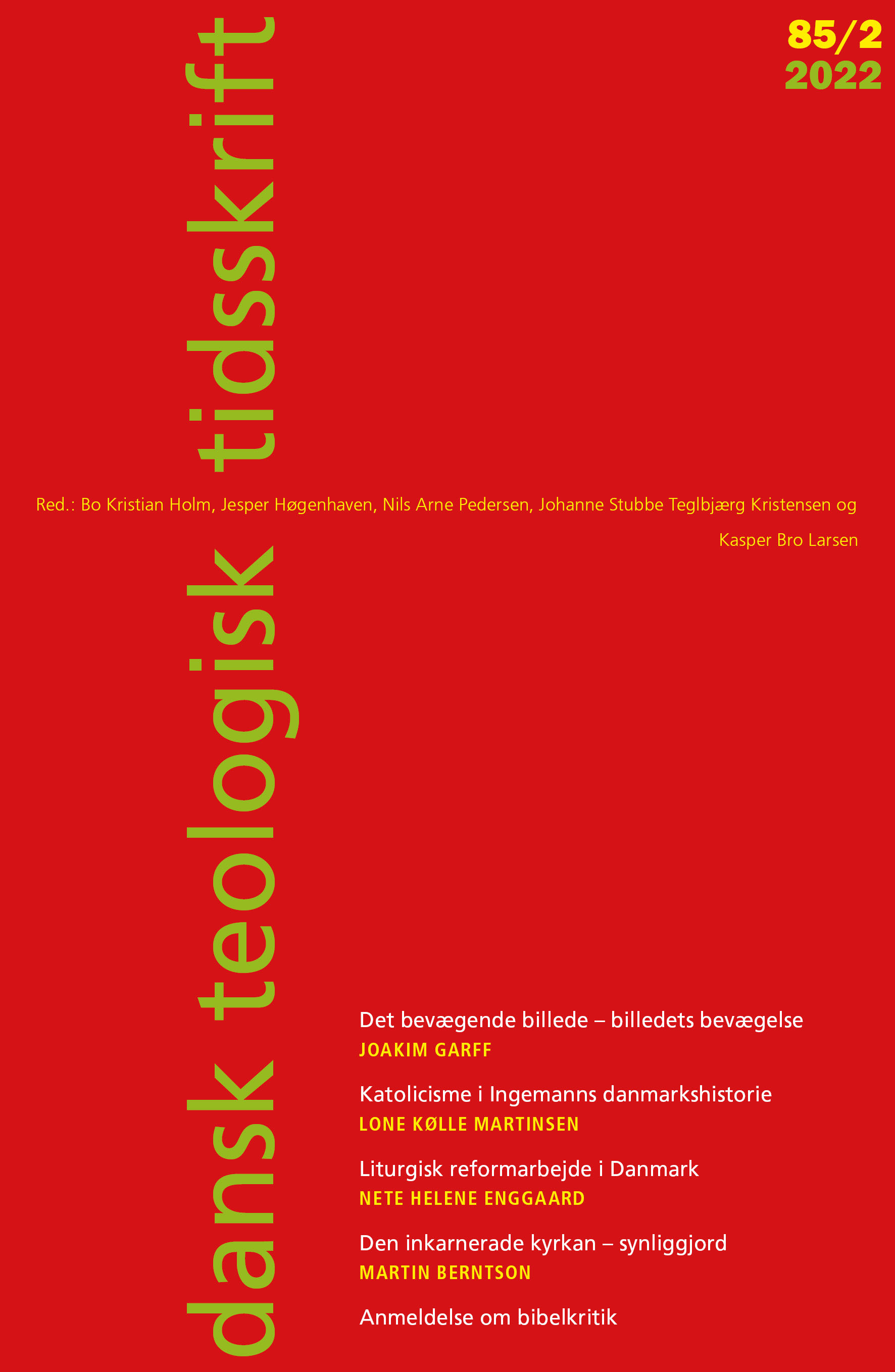Den inkarnerade kyrkan – synliggjord
Recension av Den sete kirke: Festskrift til Carsten Bach-Nielsen. Red. Mattias Skat Sommer, Nils Arne Pedersen, Jette Bendixen Rønkilde, Rasmus H.C. Dreyer, Svend E. Mathiassen & Anne Pedersen. Aarhus: Aarhus Universitetsforlag 2021. 332 sider. Kr. 395,95
DOI:
https://doi.org/10.7146/dtt.v85i2.134338Nøgleord:
Church, Cultural Heritage, Church of Denmark, Materiality, Church of NorwayResumé
The theme of the Festschrift to Carsten Bach-Nielsen in Aarhus is den sete kirke, i. e. “the seen church”. The theme derives its meaning from the fact that the Church is not just an abstraction or an invisible community, but also something that is incarnated, as it were, in the world. From the various articles in the volume, I have derived four themes concerning this “seen” Church. First, the “seen Church” always takes different material forms. The physical materials, such as church buildings, have according to the “material turn” the ability to transform us. During the Enlightenment and Pietism, the material forms of the physical church were often regarded as something negative. The “outward” forms were even considered dangerous whereas true Christianity was to be found deeply inside of man. Second, the survival of the “seen Church” has often been discussed. Should the cultural ecclesiastical heritage be something made for eternity, or has it an intrinsic value in always adjusting to the present situation? In either case, it is seldom possible to liberate the forms from its presumed content. Third, despite the skepticism from Pietism and the Enlightenment, the material forms in church culture regained their value during the 20th century. The “true church” could actually manifest itself in “seen” forms. Fourth, the “seen Church” cannot be isolated from its context. The Church as an institution is not limited to its buildings, and the activities in these buildings were, at least in earlier times, aimed at preserving society as a whole. Finally, it can be said that since history is always present in the “seen Church”, it is of importance to relate consciously to this history.





